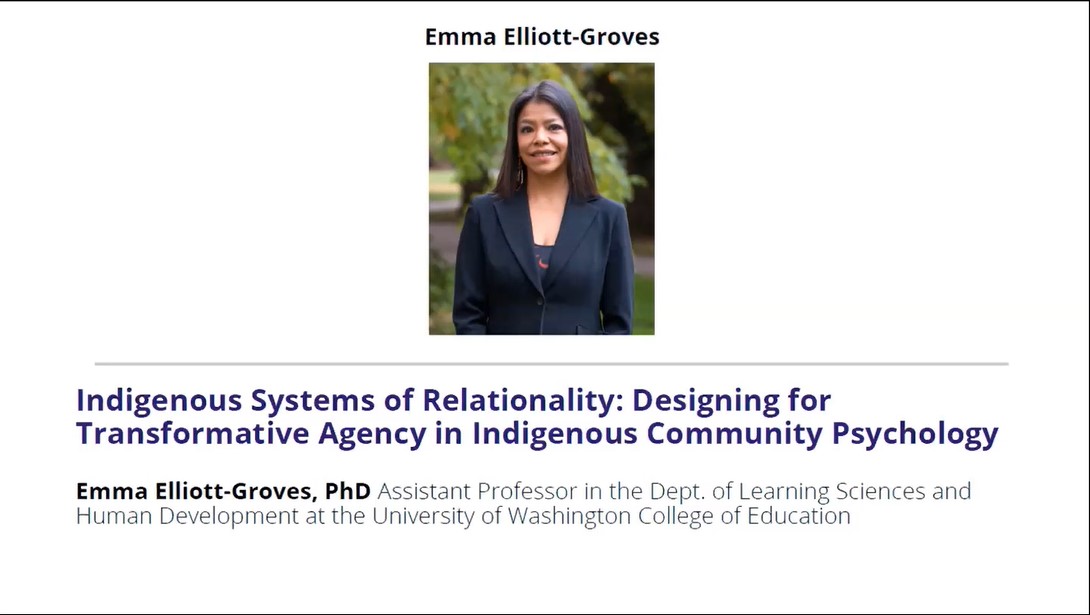
May 5th, 2021
In this session, Dr. Elliott-Groves shares several stories related to Indigenous trauma, healing, and relational restoration. By offering Indigenous understandings of relationality coupled with theories of social change, uncovering strategies that can shift mainstream approaches to Indigenous mental health. This talk calls for a paradigm shift from the prevention model to a transformative model of understanding overall wellbeing. By shedding light on the interdependence of life, as understood through Indigenous systems of relationality, researchers and practitioners can cultivate spaces for healthy, equitable, democratic, diverse, beautiful, fun, and restorative healing practices for all living beings.
Objectives:
PRESENTATION MATERIALS:
This recording is part of the UW SMART Center's 2021 Virtual Speaker Series. Learn more and register for upcoming events in the series here.
Emma Elliott-Groves, Ph.D., MSW is an assistant professor in the Department of Learning Sciences and Human Development in the College of Education at the University of Washington. She holds both a Ph.D. in Educational Psychology and a Master of Social Work in Children, Youth and Families. A large part of her research centers on understanding the meanings and explanations of suicidal behavior from the perspective of Indigenous peoples’. By employing a strengths-based approach to recovery, Dr. Elliott-Groves rigorously engages youth, families, and communities in the development of integrated behavioral health interventions to address complex social issues. Her research centers on ethical frameworks generated by Indigenous and place-based knowledge and practices to create process-centered approaches that illuminate Indigenous pathways toward collective livelihood.
Want more information and school mental health resources? Visit the Northwest MHTTC's School Mental Health page and sign up for our monthly newsletter for regular updates about events, trainings, and resources available to the Northwest region.